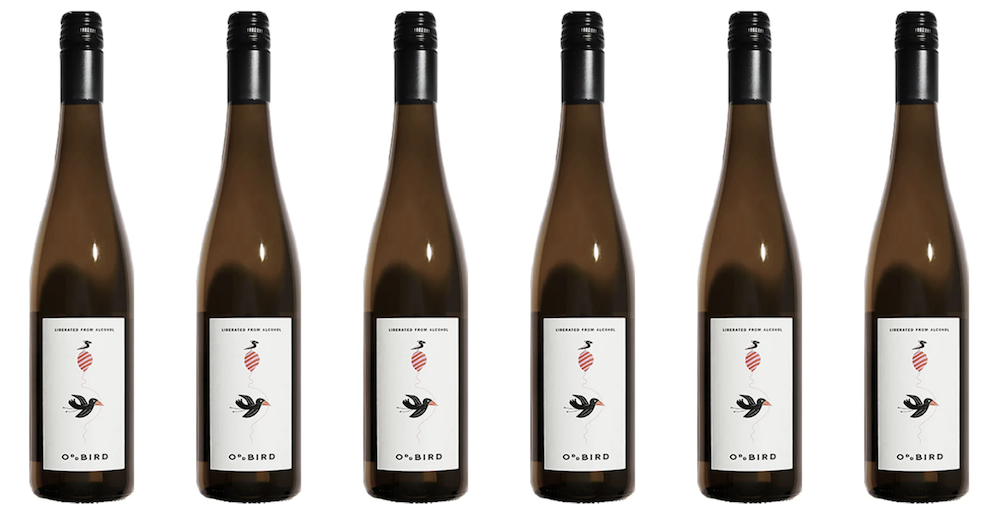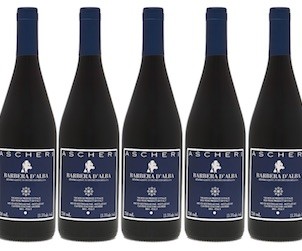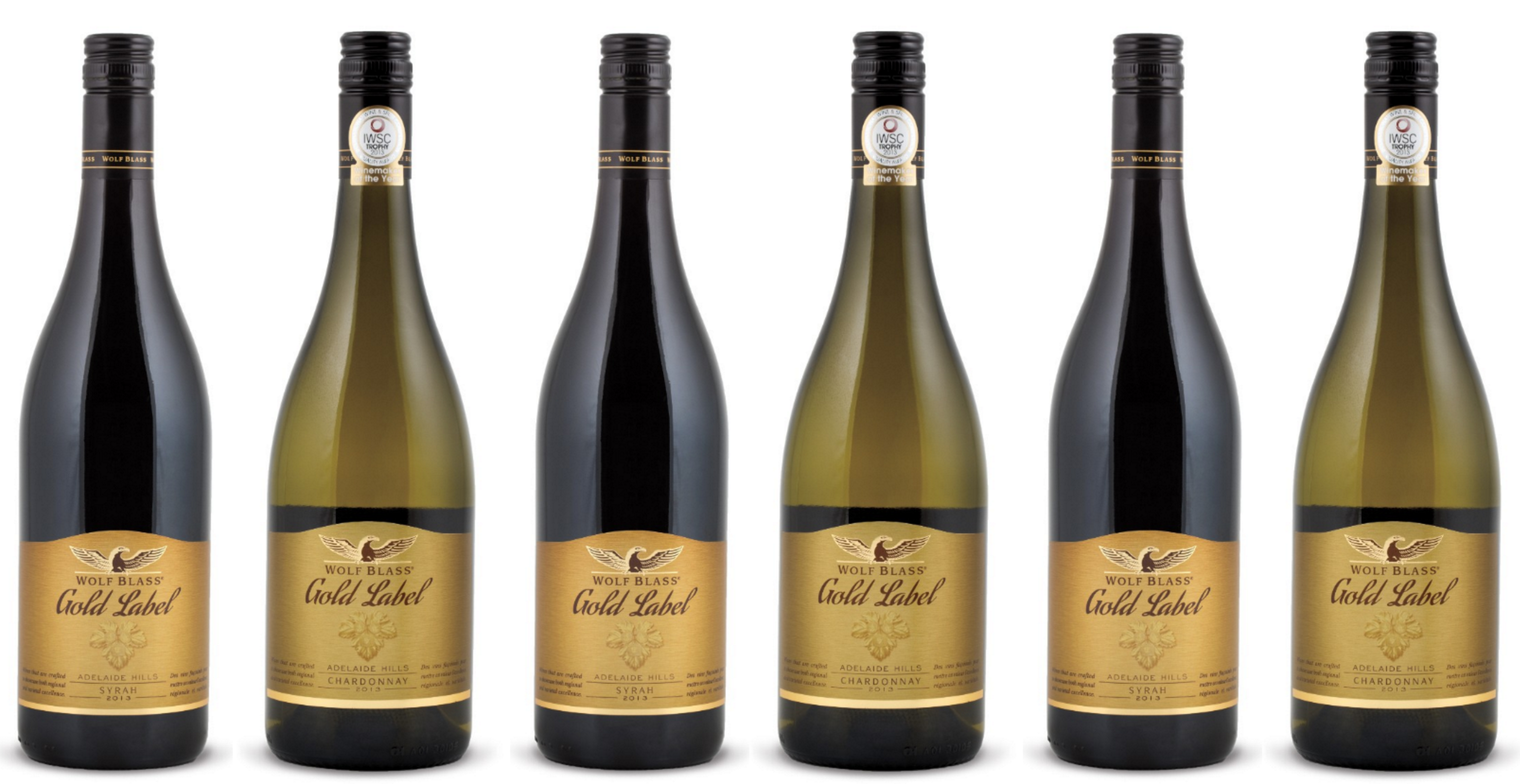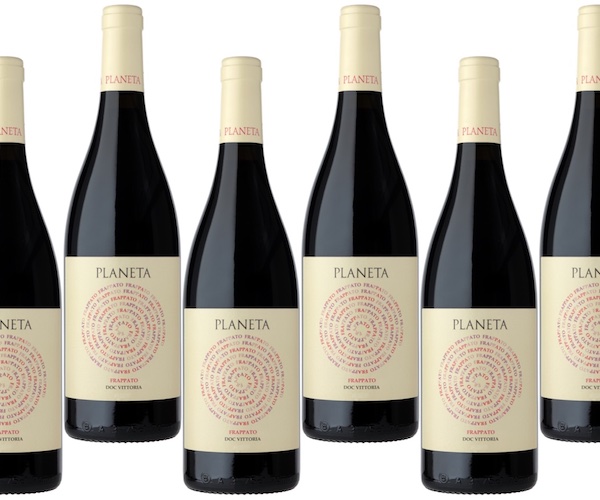NV Oddbird Low Intervention Organic White No. 2 (Limited Edition), Northern Alsace, France (Alcohol 0%, Residual Sugar 44 g/l [see below]) Clearsips website $27.95 (750ml bottle)
I’ve tried a number of de-alcoholised wines over the decades, and I have to say that not one of them has really piqued my interest. Sure, I’ve discovered some absolutely delicious no-booze beers on my travels (and a few terrible ones), but nary a wine… until now.
This is a low-intervention wine produced from organic Auxerrois, Pinot Blanc, and Riesling grapes sourced from northern Alsace, spontaneously fermented, and then aged for 12 months in old oak barrels. Despite the low-intervention approach, I feel it’s worth noting that removing alcohol from a fermented product is anything but minor surgery, but it appears that these Swedish folks at Oddbird know exactly what they are doing.
When one “liberates” wine, or indeed any alcoholic beverage, from alcohol, a few issues become apparently rather quickly; the lack of that density, weight, and mouthfeel that one gets from the alcohol tends to stand out like a sore thumb. I’ve discovered that the better alcohol-free beers out there mitigate this by utlising the textural wonders of lactose, but in wines things get a little more complicated.
I’ll admit that it’s quite a leap to go from bear-calibre alcoholic wines (read: most big Shiraz or Cab) to de-alcoholised, and I’m not expecting a wine like this convince those whose palates tend to the heavier end of the wine spectrum. But if one is a fan of lighter aromatic wines (say, Mosel Rieslings) or even lighter reds (count me in!), then the leap to Oddbird’s White No. 2 isn’t actually that much of a stretch, and more of a hop/skip/jump combo.
Those who check out the residual sugar levels I publish in every review may be shocked to see that this bottling comes in at around 44 g/l, but this is very much by design. When one “liberates” the wine from alcohol, any natural acids become way more prominent in the mix, and remember that these grapes come from Alsace, a region that’s no slouch when it comes to acid levels. I’ve come to learn that crafting enjoyable non-alcoholic wines is more to do with realigning the equilibrium once the booze has been removed than anything else, and it appears that in the case of this wine, some readjustment has been done with organic sugar post-fermentation. I can assure you that this wine is all the better for it, and certainly worthy of your time/money.
On a related note, although the wine has 44 g/l of sugar, a glass of this has around a quarter of the calories of a standard 13% alcoholic wine.
The varietal characteristics of all three grapes comes through most pleasantly on the nose. Those of you lucky enough to be familiar with easy-drinking Alsace Auxxerois will feel right at home here, as those attributes come to the fore on both the nose and palate, but as Auxerrois is famously softer acidicly, I’m pretty sure that it’s the Riesling component that’s doing the heavy lifting when it comes to the wine’s lower pH (read: higher acid).
One will find aromatics of apples, green fig, lanolin, almond, honeycomb, and a refreshing spritz of citrus. Talking of refreshing spritz, this wine has a freshness on its pleasantly raspy and tickly palate that is rather reminiscent of the tiny squirt of C02 added to Vinho Verde at bottling; upon reading the ingredients on the back label I see that this may well be case. A smart move.
It tastes off-dry, for sure, but that acidity really does keep the whole thing in quite a magnificent balance.
When one evaluates this as an alcohol-free wine, and doesn’t indulge in making slightly unfair comparisons with its full-bore brethren, it’s really quite remarkable stuff.
I’d be more than delighted to enjoy a bottle of this with my 12-years-sober wife as of an evening.
![]()
(Four out of a possible five apples)







